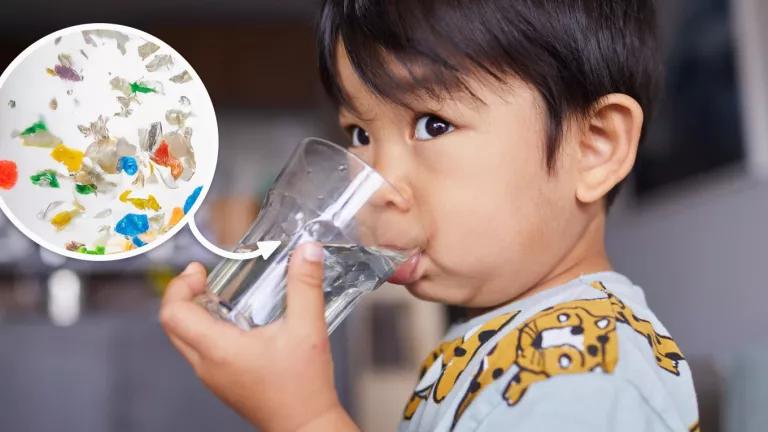
The market movement away from toxic paint strippers continues.
Yesterday, Ace Hardware Corporation became the 13th U.S. retailer to publicly commit to stop selling and distributing paint removers that contain the toxic chemicals methylene chloride and N-methylpyrrolidone (NMP).
This latest commitment comes after a sustained campaign by NRDC and Safer Chemicals, Healthy Families’ Mind the Store campaign to call on Ace Hardware to act to protect its customers from these dangerous products. After several letters from advocates to the company’s leadership, an online petition signed by more than 90,000 consumers, a failing grade in Safer Chemicals, Healthy Families’ annual retailer report card, and letters to almost all 4,000 co-op owners, the company committed on television that it will phase out these products by the end of July 2019. (Note: Ace Hardware stores are independently operated, and local stores may still buy toxic paint strippers from other distributors besides Ace at the national level.)
While this commitment is a step forward, it leaves consumers at risk of buying products linked to dozens of deaths for too long. Instead of allowing these products to be sold for several more months and not guaranteeing that the independent Ace stores cease their sales of toxic paint strippers, we urge the company to request its co-op owners issue an immediate "stop sale" and ensure that they are pulled from the shelves immediately. Recognizing the public health risks of continued sales of these products, both Lowe’s and the Home Depot have implemented this "stop sale" policy, and Ace should follow suit.
In May 2018, Lowe’s was the first major U.S. retailer to commit to phasing out these products, saying it would do so by the end of the year. That has led to a major domino effect in the retail sector. Home Depot, AutoZone, Sherwin-Williams, Kelly-Moore, and Canadian Tire quickly followed with the same commitment. More recently, Walmart announced it would phase out these products in the United States, Canada, Central America, and Mexico, where the vast majority of its stores are located, by the end of February 2019, and Amazon committed to stopping sales this spring. Just last week, Menards committed to action on toxic paint strippers. And now Ace is committed to doing the same, albeit on a delayed timeline.
Methylene chloride, a primary ingredient in many paint strippers and coatings, is a serious public health threat for both consumers and workers. Easily inhaled, the chemical turns into carbon monoxide in the body and can threaten users with quick suffocation and heart attacks. It also likely causes cancer.
To date, the chemical is responsible for more than 60 deaths in the United States, many of them contractors and DIYers. In 2017, for instance, 31-year-old Drew Wynne purchased a methylene chloride paint stripper to remove paint from the floor of the walk-in refrigerator at his South Carolina start-up coffee company. The day after he used the product, his business partner found him dead on the floor. Wynne’s death certificate said he was overcome by the chemicals in the paint stripper, primarily methylene chloride.
NMP, which has been used as a substitute for methylene chloride, poses its own risks: Studies have shown that it can impact fetal development and cause miscarriage and stillbirth. According to the U.S. Environmental Protection Agency, more than 60,000 U.S. workers and 2 million consumers are exposed to methylene chloride and NMP annually. The agency proposed in 2017 to ban both chemicals from paint strippers, but despite recognizing the dangers, President Trump’s EPA has failed to adopt these strong Obama-era rules, which necessitated the consumer campaign to compel definitive action by the retail sector to protect its customers.
As major retailers continue to remove paint strippers containing methylene chloride and NMP from their shelves, the Trump EPA appears determined to put more people at risk of disease and death from exposure for as long as possible. The EPA’s Toxics Office—which has yet to make a policy decision out of step with the chemical industry’s desires—appears to have a two-part strategy.
First, delay acting on the two-year-old proposed ban for as long as possible. The agency has refused to finalize a ban on methylene chloride (or NMP) in paint strippers, despite concluding that it poses an unreasonable risk to consumers, workers, and others. In response to this delay strategy, NRDC and Safer Chemicals, Healthy Families, along with several partners, including the Vermont Public Interest Research Group, Labor Council for Latin American Advancement, Earthjustice, and mothers of two young men who died using the products since the EPA proposed the ban, recently filed lawsuits against the agency for its failure to protect the public from these dangerous products.
Second, to relieve growing public, political, and legal pressure, and to give the appearance of caring about protecting the public, it appears the EPA is preparing to finalize a plan to ban consumer uses and sales of methylene chloride-based paint strippers but continue to allow commercial sales to contractors and other professionals. This approach—currently under review by the White House—is essentially a PR stunt, pretending to protect the public but actually creating a legal loophole that will guarantee workers, consumers, and others continue to be harmed as a result of exposure to these products. The EPA plan, to the extent information is available, would substitute a worker certification and training program, in lieu of a ban on commercial sales. There are multiple problems with this approach, including:
- There is no meaningful way to ensure that consumers and DIYers will not be able to purchase and use methylene chloride-based paint strippers, a problem the EPA already concluded when it considered a ban solely on consumer uses.
- A worker certification and training program is a major undertaking (one that the EPA has not even formally proposed; the White House is apparently only reviewing a notice from the EPA about a possible future proposed rule), which will take years to establish and which will be difficult to administer and enforce—meanwhile, workers will remain unprotected.
- Even with a work certification and training program, exposure and deaths will undoubtedly still occur—as the EPA concluded previously when considering this option and which is supported by the history of OSHA’s efforts to address the risks posed by methylene chloride to workers.
- Commercial uses—even by workers wearing proper protective equipment such as respirators and gloves—will still pose a risk to bystanders, including coworkers, and people near where the chemical is being used, such as those living in apartment buildings next to or above where it is being used.
- The EPA appears to have no plans to finalize the associated proposed ban on NMP, despite the agency already having found that safer and effective alternatives exist.
The EPA is well-aware of these fatal flaws of its fig-leaf proposal, but the decision-makers at the agency don’t seem to care. It is a certainty that more people will die while methylene chloride remains on the market in paint strippers, but to the Trump EPA and the chemical industry, that’s a price of maintaining business as usual that they’re willing to pay.
The public should not have to pay the price with lost lives simply because the EPA remains in the pocket of Dow, DuPont, Monsanto, and other giant chemical corporations. Until the grip the chemical manufacturers currently hold on the EPA is broken, Ace Hardware and other retailers must act quickly to stop sales and keep these dangerous toxic paint strippers from harming the public.
Mike Schade is the Mind the Store Campaign Director of Safer Chemicals, Healthy Families. Sujatha Bergen is Health Campaigns Director at the Natural Resources Defense Council (NRDC). Daniel Rosenberg is Director of Federal Toxics at NRDC.





